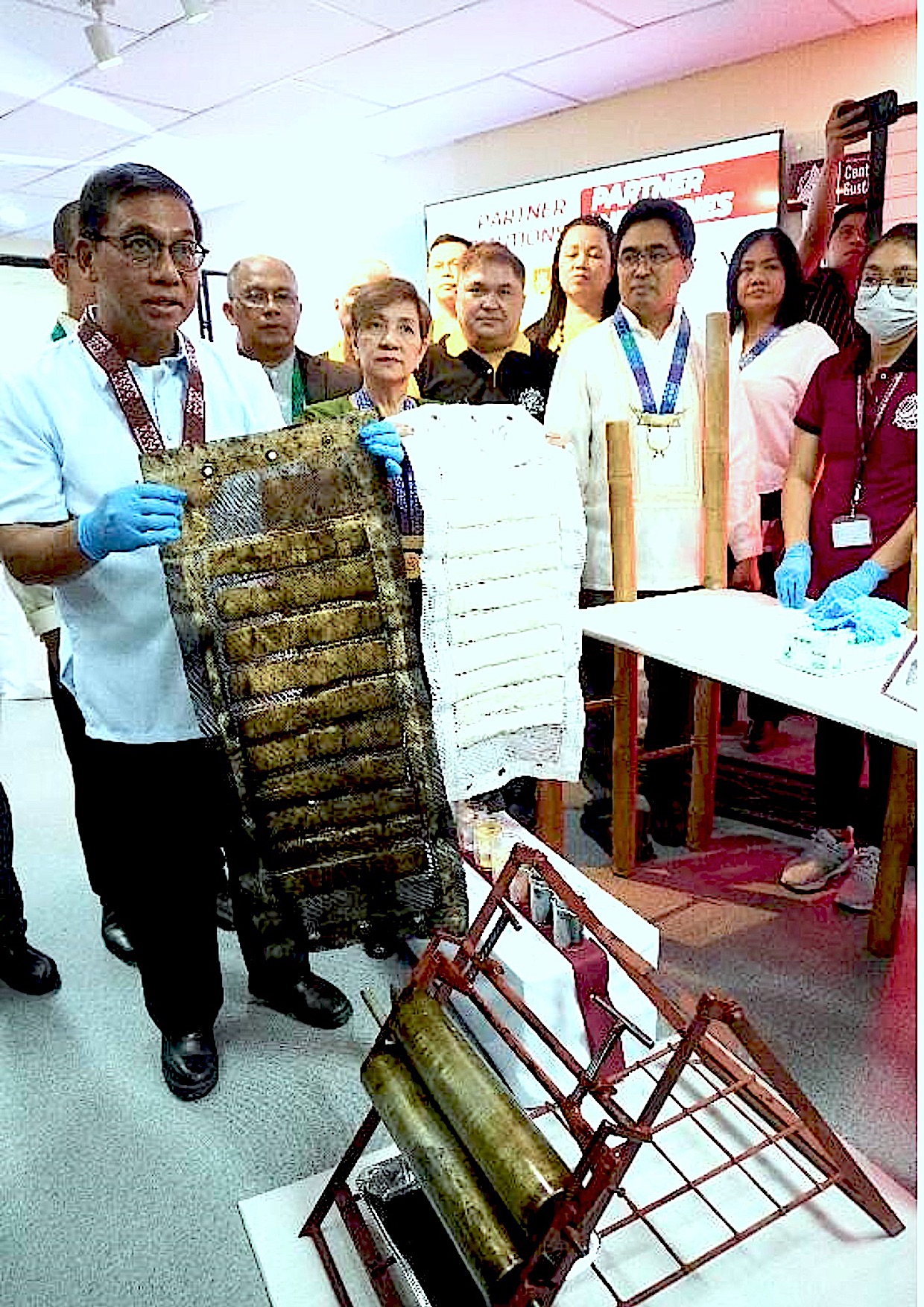
ILIGAN CITY—A bio-based polyurethane foam has been successfully tested on its oil absorption in the oil spill in Mindoro and the head of the team from the Mindanao State University-Iligan Institute of Technology (MSU-IIT) said the technology would be refined further to absorbed the oil that has dried a bit on sea.
The polyurethane foam labeled as “CocoFlexSorb” was successful in absorbing the oil spilled at sea by the MT Princess Empress when it sunk in March this year, said Hernando P. Bacosa, professor of Environmental Science of the College of Science and Mathematics at MSU-IIT.
Bacosa said the technology uses coconut oil tweaked to absorb other oils but this was rushed to respond to the oil spill. While it did show the capacity to absorb the crude oil, he said much of the oil spilled had been weathered, or dried up and had to be scooped manually.
“We would be researching again on how this technology would be able to absorb the bigger-sized weathered oil,” Bacosa said.
According to the Department of Science and Technology (DOST), the CocoFlexSorb was one of three new innovations in foam products that were developed from the “DOST-Niche Centers in the Regions for R&D,” or “Nicer,” program by the Center for Sustainable Polymers at the MMSU-IIT.
Also called “Superoleophilic Foams,” the technology “has shown potential to absorb numerous types of oil.”
“The material has been proven to have high affinity and sorption capacity in bunker oil, fresh and used engine oil, kerosene and vegetable oils,” the DOST said. “It is hydrophobic in both fresh and salt water and has superior reusability as its oil sorption capacity does not diminish with use.”
The research team was almost to give up on further research on this particular foam product after several tests in the past 18 months always exhibit the coconut oil to absorb water, aside from other oils, thus filling up the buckets that were supposed to store any other oils that were targeted to be absorb.
“This technology was rushed because of the oil spill and so, the research was quicken,” Bacosa added.
The technology would require only a small bucket size to fit the storage and its other gadgets less than a one cubic meter, when it was tested. In commercial use, there would be several of this package, which would be placed alongside the oil spill boom. Bacosa said the technology “is still in its technology stage and is not commercialized yet.”
This foam technology is unlike those available in the market: it has superior oil absorption capacity and can absorb different types of oil from light, vegetable, kerosene, engine and bunker oil.
The “Superoleophilic Foams,” of the foams labeled CocoFlexSorb, was presented late last week to the public during the inauguration of three DOST-financed laboratories inside the MSU-IIT. These are: the Research Institute for Engineering and Innovative Technology (RIEIT); and, the two research centers under it, the Nicer-Center for Sustainable Polymers (CSP) and the Center for Energy Research and Technology (CERT).
The other foams include the Rigid Insulation Foam Panels, designed specifically for the building and construction industry, targeting the segment who prioritize sustainable and eco-friendly materials and the first of its kind to use polyol derived entirely from coconut oil, without any petroleum-based substitutes, Another is the “Viscoelastic Foam,” a bio-based alternative to commercially available “memory” foams, which has higher density than conventional foams and possesses the signature feature of memory foams—slow recovery.
Bacosa is one of the Filipino scientists who responded to the government’s call to return to the country under the “Balik Scientist” program. He graduated from the main campus in Marawi City of the MSU and took his masters and doctorate in Environmental Science in Japan. He went to the US to teach Marine Science at the University of Texas.
Image credits: DOST-PCIEERD
